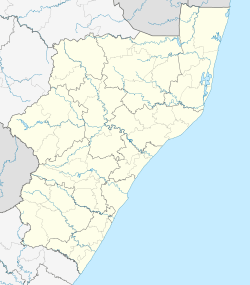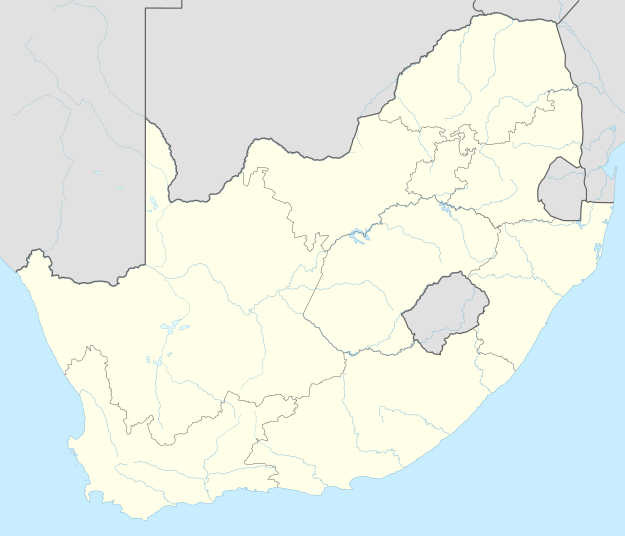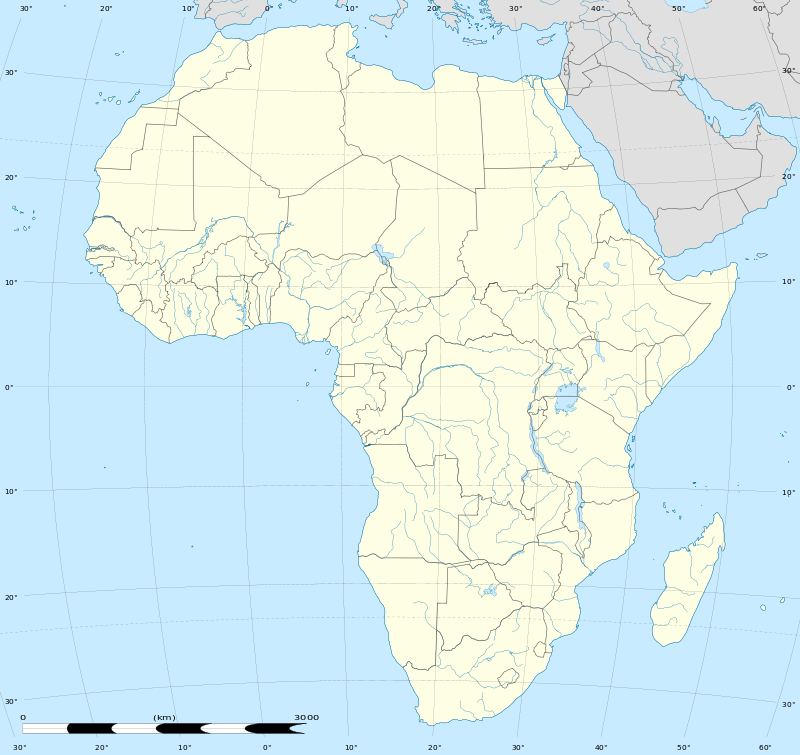Richmond, KwaZulu-Natal
| Richmond | |
|---|---|
 Richmond  Richmond  Richmond
| |
| Coordinates: 29°52′S 30°16′E / 29.867°S 30.267°ECoordinates: 29°52′S 30°16′E / 29.867°S 30.267°E | |
| Country | South Africa |
| Province | KwaZulu-Natal |
| District | UMgungundlovu |
| Municipality | Richmond |
| Established | 1850[1] |
| Area[2] | |
| • Total | 3.14 km2 (1.21 sq mi) |
| Population (2011)[2] | |
| • Total | 3,349 |
| • Density | 1,100/km2 (2,800/sq mi) |
| Racial makeup (2011)[2] | |
| • Black African | 62.7% |
| • Coloured | 9.6% |
| • Indian/Asian | 16.8% |
| • White | 9.9% |
| • Other | 1.0% |
| First languages (2011)[2] | |
| • Zulu | 49.2% |
| • English | 38.2% |
| • Xhosa | 3.3% |
| • Afrikaans | 2.0% |
| • Other | 7.4% |
| Postal code (street) | 3760 |
| PO box | 3760 |
Richmond is a town situated on the banks of the upper Illovo River in the midlands of KwaZulu-Natal, South Africa, approximately 38 km south-west of Pietermaritzburg. Timber, sugarcane, poultry, citrus fruit and dairy goods are produced here. The town is located within the Richmond Local Municipality, forming part of the Umgungundlovu District Municipality and incorporates the former township of Ndaleni on the opposite bank of the Illovo River.
Richmond was established in 1850 as Beaulieu-on-Illovo by British Byrne Settlers who were originally from Beaulieu, the seat of the Duke of Buccleuch in Richmond, North Yorkshire. The name was later changed to Richmond for ease of pronunciation.
The arrival of the settlers brought about a slow return of various remnants of African people who fled the raiding Zulu armies. The Zulus called these refugees "amaBhaca", (people who hide). Although composed of elements of many different groups, the Bhaca have developed their own identity.
In February 1906 two British officers were killed at Byrne, near Richmond while involved in enforcing the collection of the hated Poll Tax from "recalcitrant districts". This incident, known as the Trewirgie Incident, precipitated the imposition of martial law and set off the Bambatha Rebellion.
One of Natal's greatest tycoons, Joseph Baynes, a Yorkshireman by birth, was a pioneer of the dairy industry. His Baynesfield Estate was bequeathed in his will to the nation of South Africa.
A good history of Richmond has been written by Coulson 1986 [3]
References
- ↑ "Chronological order of town establishment in South Africa based on Floyd (1960:20-26)" (PDF). pp. xlv–lii.
- 1 2 3 4 "Main Place Richmond". Census 2011.
- ↑ Coulson, Charmian (1986). Beaulieu-on Illovo Richmond Natal Its people and History. Richmond Women's League and Institute. p. 375. ISBN 0-620-10395-7.
.svg.png)